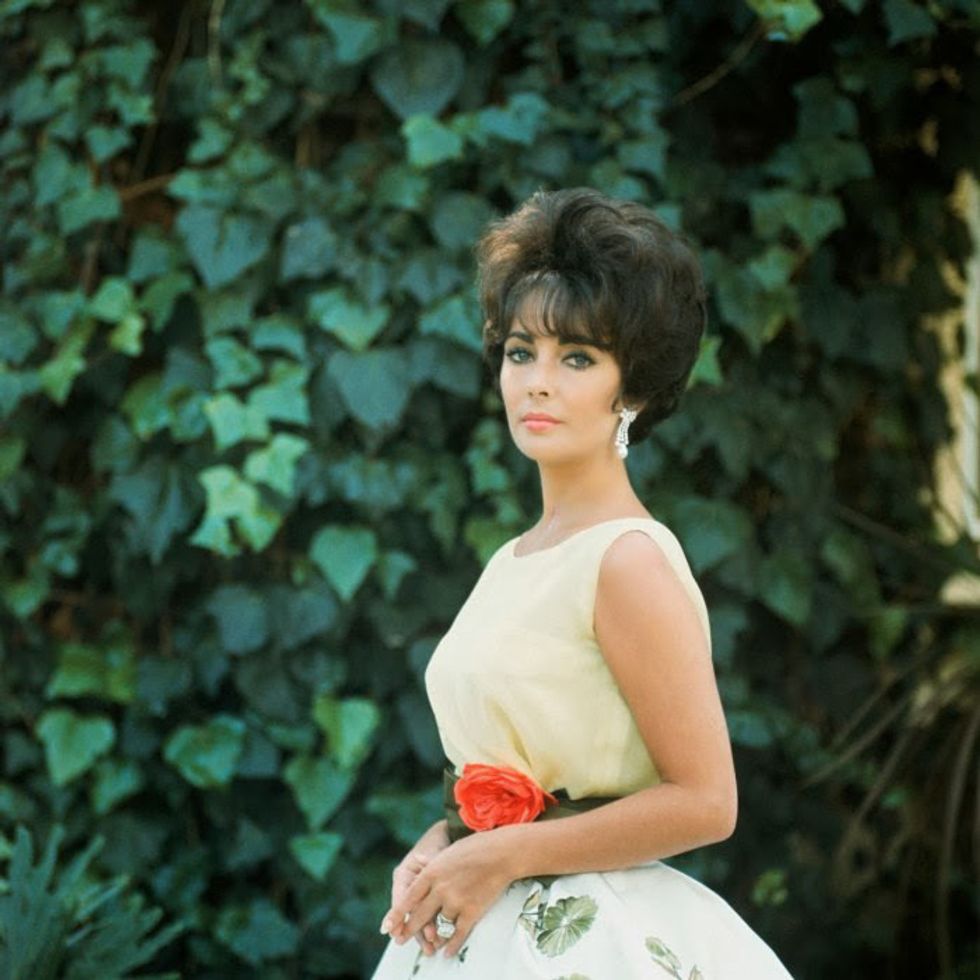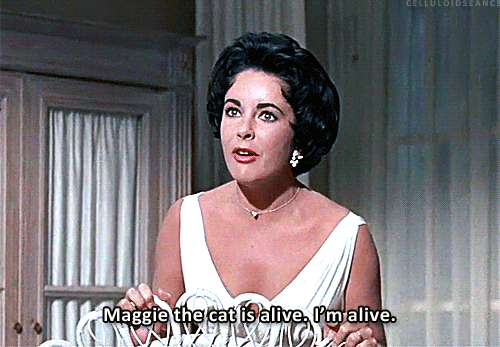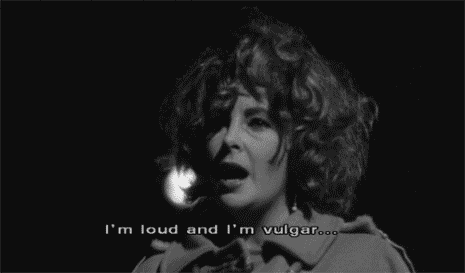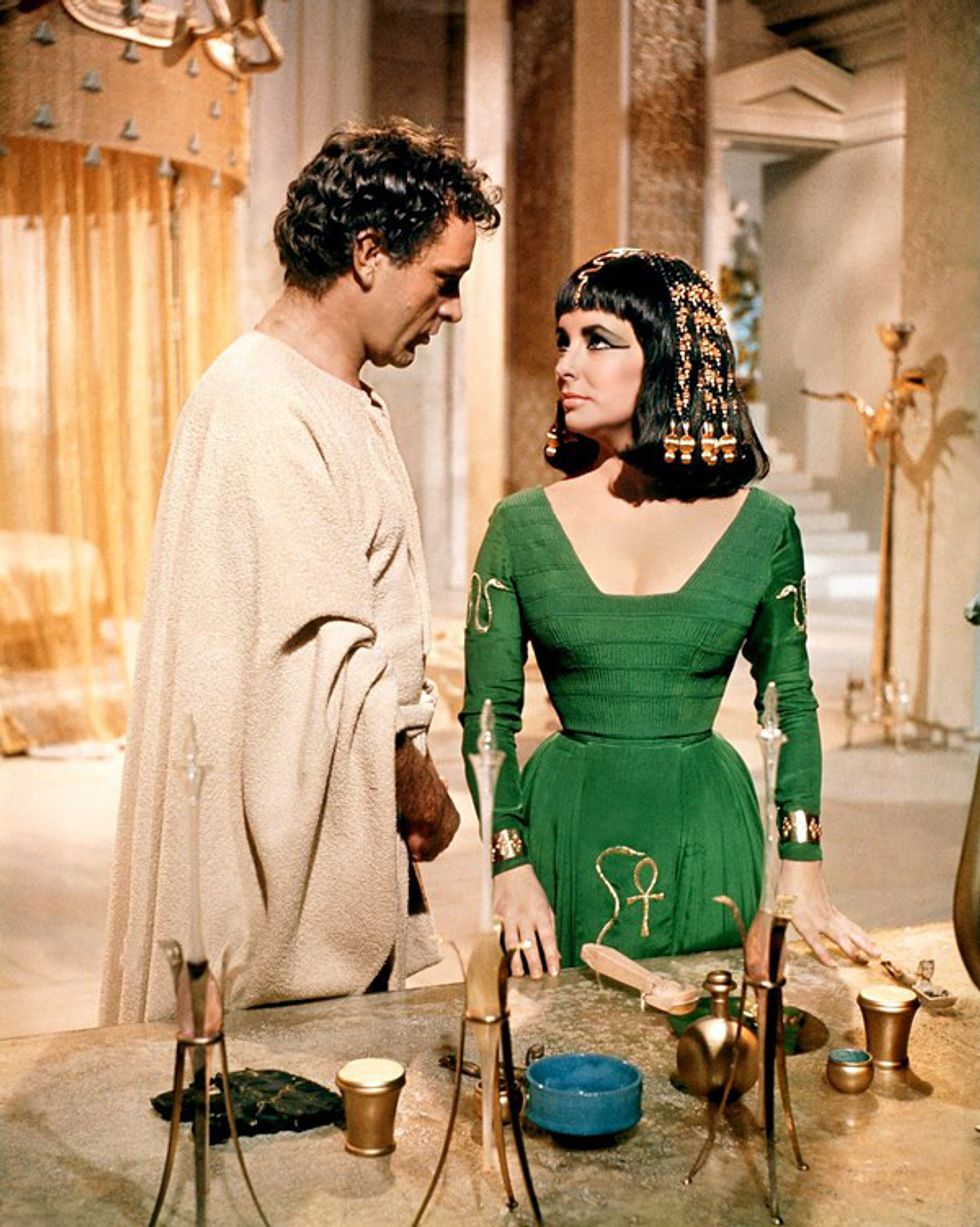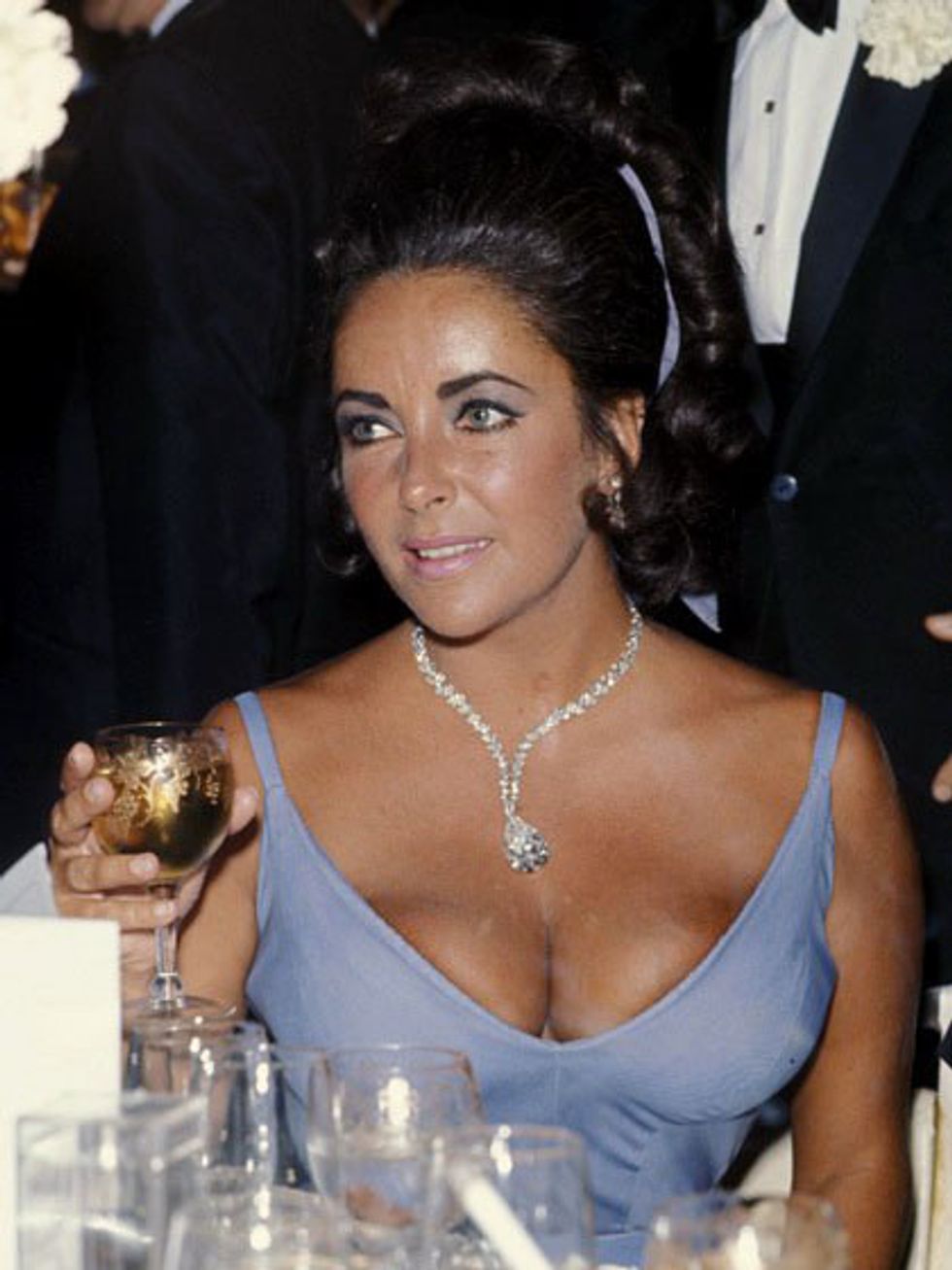To dismiss Dame Elizabeth Rosemond Hilton Wilding Todd Fisher Burton (Burton, again) Warner Fortensky Taylor as an actress would be a glaring understatement. She was a phenomenon, and with good reason. Her life was more drama-filled than any of her movies, including a history of critical health problems (like the emergency tracheotomy which left a scar that could only be covered by the infamous 68 carat Burton-Taylor Diamond), eight marriages, two to the same man, her Academy Awards, and the drastic weight gains and losses. For decades, Taylor's name was a staple of headlines across the world.
Elizabeth Taylor is, above all else, beyond description, and Feb. 27 marks what would have been her 84th birthday. In her honor, I'll be watching either one of her amazing films, or any one of her notorious bombs, because a movie with Liz Taylor is like sex or pizza; even when it's bad, it's still good.
The good
"Cat On a Hot Tin Roof" (1958).
Tennessee Williams' play adheres to his tried-and-true style of revealing the seamy underbelly of southern aristocracy, but it's Taylor who brings the character of Maggie "The Cat" Pollitt to life with a crackling sensuality and a raw yearning for her husband's affection. As the titular Cat, Liz swaggers and struts across the backdrop of a fine ol' Mississippi plantation, bringing together the best of both her on-and-off screen sex appeal and Tennessee Williams' penchant for damn fine southern gothic literature.
"BUtterfield 8" (1960).
"Butterfield 8" earned Liz her first Oscar, even though many claim she got it out of pity after a near-fatal bout of pneumonia. After being publicly deemed a homewrecker (she stole America's sweetheart's husband, knocking Sputnik off the front pages and making him number four in her constellation of failed marriages), MGM offered (forced) her this role as her last for the studio, and while she hated it, she played Gloria Wandrous to the hilt. Gloria is a jaded woman who often confuses sex with love, ultimately leading to her demise. While the film's message is a little puritanical, Taylor gives a phenomenal performance (arguably the second best of her career), most evident in her "I was the slut of all time!" speech she gives her mother.
"Who's Afraid of Virginia Woolf?" (1966).
Liz's best, hands down, bar none. In "Virginia Woolf," her magnum opus for which she gained 30 pounds, she plays Martha, wife of an associate professor (played by her real-life husband, the classically trained Shakespearean actor Richard Burton). You would think that Liz, while a capable actress, would be buried under Burton's bravura, yet she manages to hold her own, blow for blow, insult for insult, drink for drink (for drink for drink for drink). The result is a brutally frank two-hour domestic quarrel which takes place over the course of one booze-soaked night, making a Maury rerun seem like The Waltons by comparison. Taylor, expertly playing a cruel, nagging harpy trapped in a loveless marriage, snagged her second Oscar for this, and no one can say she didn't deserve this one.
The bad
"Cleopatra" (1963).
The mother of all historical epics, "Cleopatra" is a four-hour long meandering mess from start to finish. Weighted by unending dialogue, devoid of any dynamicism, "Cleopatra" only plays such a large role in the pantheon of Taylor's filmography because of its historical context: its budget of $31 million made it the most expensive film ever made, nearly driving 20th Century Fox into bankruptcy, and Elizabeth Taylor was paid a record-shattering $1 million to play the role of the tragically-fated Queen.
"Boom!" (1968).
How can something so right be so wrong? You would think that since Tennessee Williams and Liz worked so well together, and Richard Burton and Liz worked so well together, the three of them pulling in the same direction would make an unprecedented cinematic masterpiece.
Instead they gave us "Boom!"
Liz is Sissy Goforth, the richest woman in the world, who lives alone on her own private island. When Chris Flanders (Burton) shows up on her doorstep (coastline?), they engage in a nonstop tête-à-tête, with Liz trying to seduce him every third minute. Every single line is fraught with some pitiful attempt at meaning and the entire thing is one pseudo-artistic bomb (no pun intended), the cinematic equivalent of Squidward playing the clarinet. But you can't look away. It's just such an odd, painfully inexplicable film, a gloriously beautiful, hideously mangled attempt at substantial cinema.
"The Flintstones" (1994).
I will go to my grave denying that she co-starred in this movie.
Elizabeth Taylor was the first true movie star, the first major celebrity to proudly embody and flaunt excess and luxury. Coincidentally, as the jet set and their style of fast-paced, high-cost living fell out of favor and fashion, so too did Liz and her films. And while her last few movies were questionable at best, baffling at worst, her legacy, her beauty, and her talent (along with the annual revenue her estate brings in) are eternal. Happy birthday, Liz.




